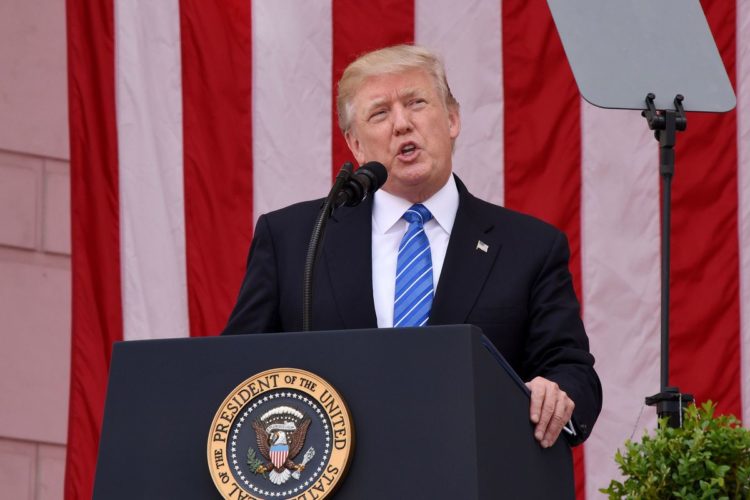Trump Puts a Lot on the Line for 2018: Jonathan Bernstein

(Bloomberg View) —Donald Trump is personally attempting to stop Republican Senator Jeff Flake’s re-election in Arizona, with the White House reportedly meeting with three potential primary challengers. Flake is no Trump loyalist; he was one of the strongest Republican critics of Trump from his chamber during the presidential campaign. But while he does have some idiosyncratic positions — he’s no immigration hard-liner and he supported Barack Obama’s Cuba policy — Flake scores as one of the most conservative Republican senators.
Trump is likely doing this because of personal pique, not for grand strategic reasons. But a lot rides on it.
The upside is obvious: If Trump can actually bring about the primary defeat of a sitting Republican senator and then hold that seat in the general election, he’ll gain considerable respect from, and influence over, Republican party actors everywhere. It’s not just that other Republicans will be afraid he’ll do the same thing to them; it’s about, well, magic. All newly elected presidents have influence over their party (and over the political system in general), in part because winning creates the illusion that they have some grip on the electorate. As MSNBC’s Steve Kornacki put it: “Think about the psychology of GOP members of Congress: Don’t like him, didn’t endorse him, assumed he’d lose the primary, then the general … then he wins both and they think: Holy cow — this guy gets my own base better than I do.”
Of course, there’s no real magic, for Trump or any other winning candidate. Trump’s victory, especially in the general election, basically conformed to normal rules of politics. In a very partisan era, he demonstrated that a party nominee wins party voters. Remember that, if anything, Trump fell a bit behind fundamentals-based forecasts of the likely Republican vote in 2016; he just wound up very, very lucky with the distribution of votes across states, and (thanks mainly to some lousy state polls and a few analysts who produced overconfident polling-based forecasts) he surprised everyone on election night. None of that indicates some sort of special ability to defy the laws of politics. But it’s not surprising that a lot of people believe he can.
And that’s the real risk for Trump in taking on Flake. It’s bad enough to take on a challenge like this and wind up looking like a paper tiger if it’s unsuccessful, but for the most part that ship has sailed: No one really thinks Trump follows through effectively on his threats anymore, although this is one high-profile way to further cement his weak reputation. Especially if he can’t recruit anyone in his effort, or if he gives up after the initial media reports. And it’s also a problem if his antagonism backfires, with Flake — and perhaps other Republicans in Congress — becoming even less loyal to Trump over the next year because he isn’t loyal to them.
But it’s even worse if Trump contributes to the end of the feeling that he has some special voter-related magic, which is his last best weapon for keeping any influence over other political actors. Granted, the Arizona primary is late (September 2018) and Trump may be fated to lose his reputation for magic in November 2018 regardless of what he does. A primary defeat, however, could be even worse than a general-election landslide, because it would step particularly hard on the idea that Trump has a strong connection with solidly Republican voters. And if that belief in Trump’s “magic” disappears, there’s very little reason for Republicans in Congress to do anything at all for the president unless it’s something they would have done anyway.
Oh, and it also would make a primary challenge in 2020 more likely.
That’s a lot of risk for what is probably just a case of attempting to satisfy one’s sense of grievance.
This column does not necessarily reflect the opinion of the editorial board or Bloomberg LP and its owners.



No Comment